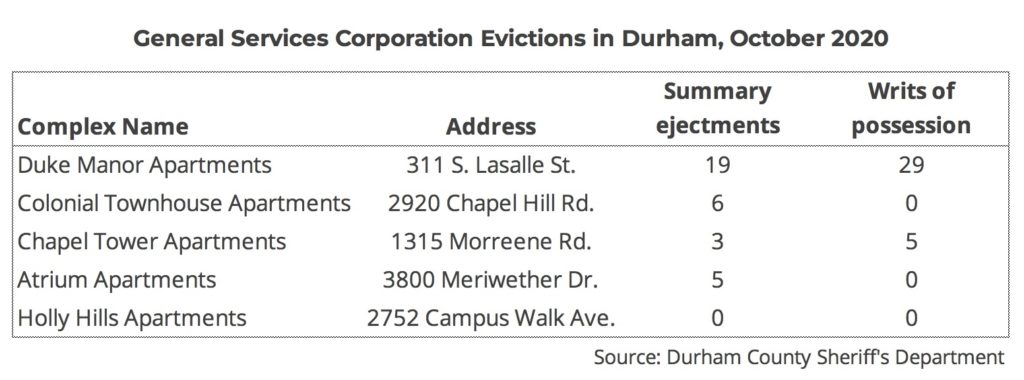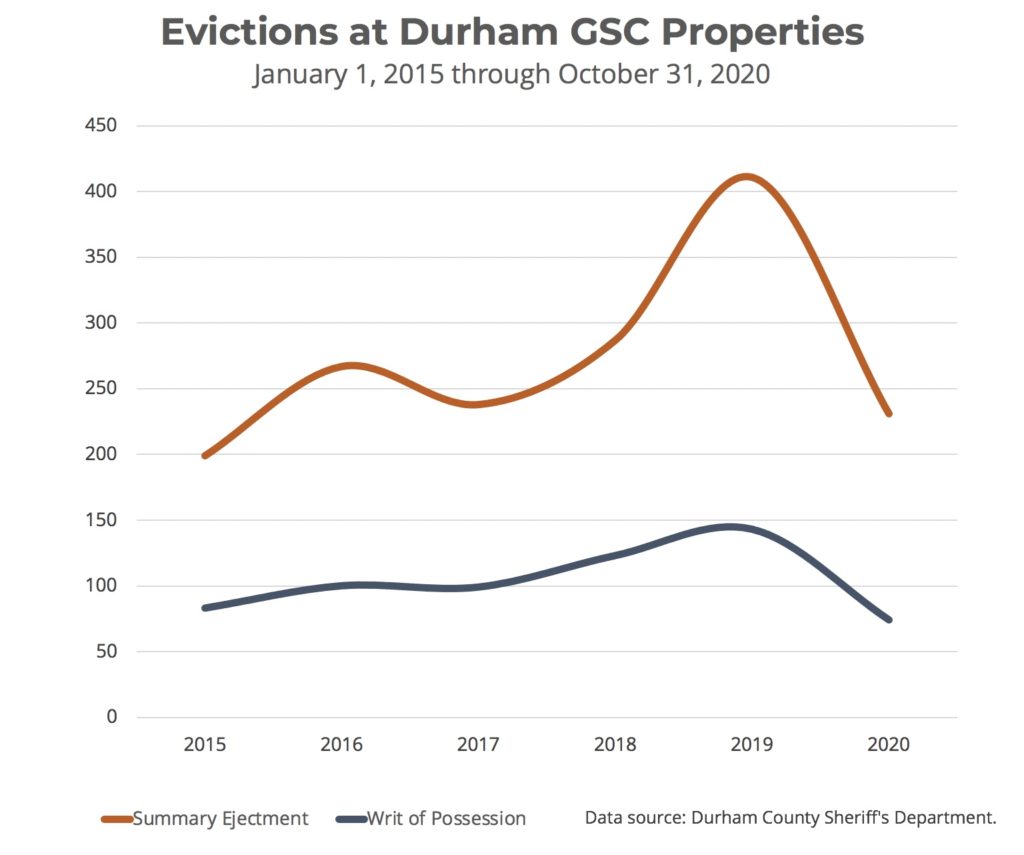As COVID-19 cases soar and thousands remain out of work, the National Council of State Housing Agencies estimates that by January of 2021, the potential number of eviction filings in North Carolina could reach 240,000.
Temporary measures
In response to this crisis, Governor Roy Cooper recently passed a state executive order strengthening the US CDC’s September halt on evictions resulting from nonpayment of rent. The state order requires landlords to proactively make their tenants aware of the CDC mandate’s payment deferment process.
North Carolina has also created an initiative known as NC HOPE to provide up to six months of rent and utility assistance to renters whose household incomes fall below 80% of their county’s median. As of November 11, that program is no longer accepting applications due to the high demand and all funds being committed.
These temporary measures are reducing eviction rates in Durham County, which saw 193 summary ejectments filed in October. While this filing rate is substantially lower than in previous years, the occurrence of nearly 200 evictions demonstrates that the federal and state eviction measures are not sufficient to address this period of unprecedented instability.
For example, neither executive order prevents landlords from evicting tenants for reasons other than nonpayment of rent. This means landlords may still try to evict tenants who can’t pay by claiming other lease violations such as illegal activity in the unit. In addition, there are no numbers to reflect a potential jump in informal evictions, which occur when landlords push a tenant to vacate without going through proper legal channels. Nor do we know, as the months of this pandemic have gone on, how many leases have not been renewed for tenants who may have faced eviction but were working with their landlord.
During October 2020, the Executive Orders seem to have prevented several of Durham’s routine top evictors from filing. However, there are some exceptions. The following property owner profile explains key patterns in local property ownership that contribute to Durham’s ongoing eviction crisis.
General Services Corporation
General Services Corporation (GSC) is a rental property owner and management company based in Richmond, Virginia. Like many of Durham’s high-eviction landlords, GSC is a for-profit multi-family housing corporation. They own over fifty properties across the Southeastern states and Nevada.
Though GSC’s slogan is “residents are people first,” this company has consistently ranked as one of Durham’s top evictors both before and throughout the pandemic. In October 2020, GSC properties filed 33 summary ejectments and 34 writs of possession. This is actually a higher overall number than October of 2019, before the pandemic, when they filed 41 summary ejectments and 18 writs of possession. Despite a global health and economic crisis and legal barriers to evictions, General Services Corporation has still worked to remove a significant number of people from their homes in recent months.

While Durham has seen an influx of emerging non-local real estate firms looking to profit from apartment complex ownership, GSC has had a presence in the Triangle for at least two decades. With five complexes in Durham, six in Chapel Hill and three in Raleigh, their internal policies impact thousands of tenants across the region, many of whom are low income.

While evictions overall have slowed down with the passage of recent tenant protections, General Services Corporation has not wavered from its usual practice of evicting en-masse. Though GSC’s high number of filings and long-term presence in the Triangle make it somewhat unique among corporate owners, GSC’s story clearly demonstrates how corporate owners hold a large amount of influence over the homes of working class tenants in Durham and beyond.

Leave a Reply